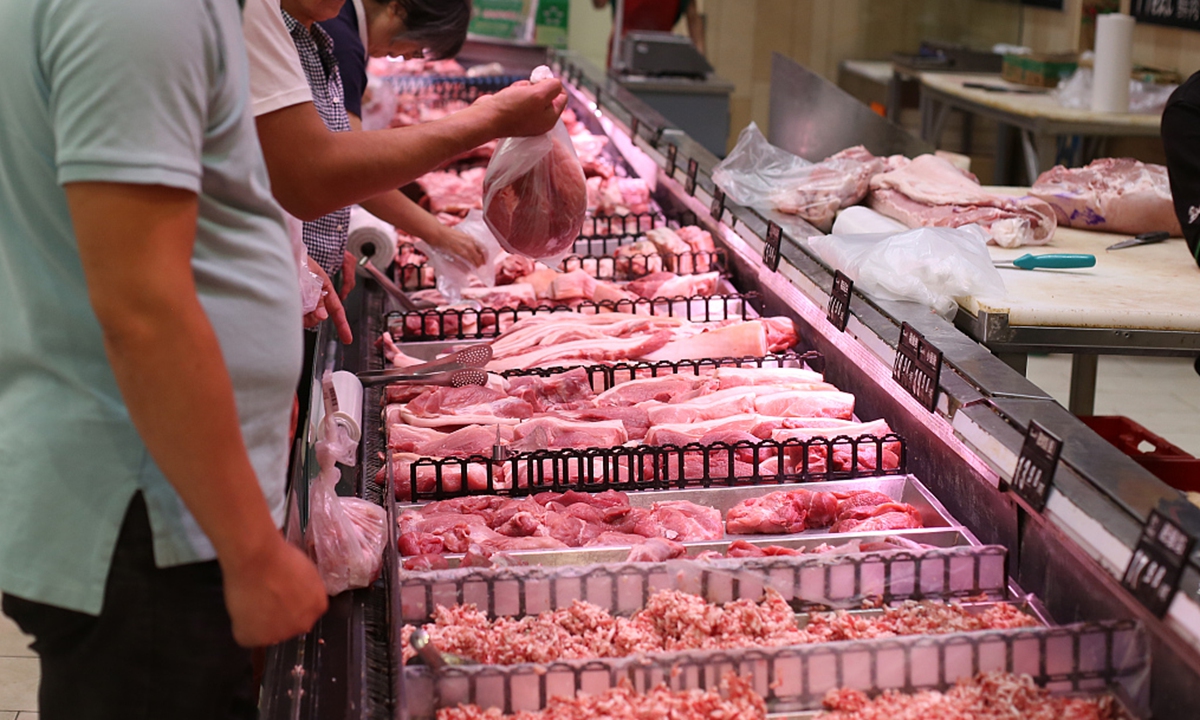China not likely to resume pork trade with Germany over COVID-19 and swine fever concerns

Photo:VCG
Germany, one of the biggest pork suppliers in Europe, is reportedly continuing talks with China in hopes to resume pork trade between the two countries, after its products were banned from entry to the Chinese market after the discovery of African swine fever (ASF), according to a report by Reuters.
However, experts say the trade is not likely to resume in the short term over concerns about COVID-19, as well as the swine fever.
Germany reported around 150 cases of the ASF among wild boars and not livestock as of mid-November, and it has contained the virus within two states, according to Germany's health authorities.
While Germany is still trading within the EU, resumption of trade with China would expectedly take longer than one year, given the current uncertainties amid tight regulations on the swine fever, as well as rising concerns over the COVID-19, Gao Guan, deputy director of the China Meat Association (CMA) told the Global Times on Friday.
Gao also noted that although Germany usually is the fourth biggest pork provider to China, China is heavily self-reliant on pork supply, with imports accounting for less than 4 percent of total consumption in the past years.
"However, this year, the percentage of imports in China's total pork market has increased to around 10 percent, due to tight domestic supply and plunging overseas prices," Gao said.
In the first three quarters of this year, China's pork imports have grown to 3.29 million tons, more than a 132 percent increase compared to the same period last year.
"China is the world's biggest consumer of pork, and the outbreak of African swine fever has wiped around 10 percent off from China's total pork output this year, pushing up the pork price," Gao said.
Compared to the tight domestic supply, prices of imported pork have been plunging so far this year. According to the General Adminsstration of Customs(GAC), the average price of China's pork imports has dropped to 16.5 yuan per kilogram in August, down more than 7 percent compared to January. Imports from China's major pork sources, including the US, Canada, Brazil and Spain, have seen prices slashed by 7 percent in May compared to the beginning of this year.
However, this year's pork imports have been weighed on both by the discovery of ASF, and the COVID-19 pandemic, which has raised widespread concerns over the risks of infection through cold-chain supply.
According to China's customs authority, a total of 99 companies from 20 countries are banned from exporting to the Chinese market over COVID-19 infection risks, 82 of which suspended supply voluntarily.
Cold-chain products, including imports of pork, have repeatedly tested positive for COVID-19 over past months. Pork products from companies based in countries including Argentina, Germany, and Brazil have all tested positive across China.
However, with the ASF coming under control in China, supply has begun to resume and prices have been dropping back to normal. According to Gao, domestic pork supply can be expected to resume to normal within the next year.
Global Times


